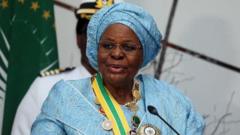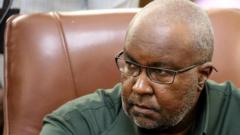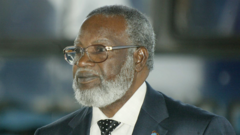Namibia's new leader, President Netumbo Nandi-Ndaitwah, made headlines with her announcement to abolish university fees by 2026, a move framed as a response to longstanding student demands for affordable education. This revelation was made during her first state of the nation address, where she emphasized that students at public universities and technical colleges would not be required to pay registration or tuition fees.
The initiative is set to be rolled out gradually, with President Nandi-Ndaitwah stating that for the time being, families and students would only need to contribute towards accommodation and related costs. This pledge to provide free higher education echoes sentiments voiced in neighboring South Africa's #FeesMustFall movement, where students similarly protested against rising education costs.
Despite the optimistic tone, concerns about the initiative's implementation have emerged. Nandi-Ndaitwah indicated that the funding for this ambitious plan would mostly come from existing subsidies to public universities and the student financial assistance fund. However, she noted that there would not be a substantial increase in funds available to support the initiative, raising doubts about its long-term sustainability.
Student organizations are divided over the announcement; while some regard it as a victory for their advocacy, others, like the Affirmative Repositioning Student Command (ARSC), criticize it as lacking substance and clarity. The ARSC voiced concerns about the ambiguity of the announcement, questioning which categories of students would benefit and how the government plans to concretely support the plan without additional funding.
Economists have echoed these apprehensions, predicting that the removal of fees without financial backing could eventually limit the number of students able to enroll in programs. As a cautionary tale, they pointed to South Africa's previous experience with implementing vague commitments to free education, where many students remained excluded from benefits despite initial promises.
While Namibia aims for broader accessibility to higher education, how it manages these plans will be crucial to ensure that the promise of "fees have fallen" does not become another unfulfilled pledge. As the discussion progresses, many citizens and students will be watching closely for further details and developments regarding the future of higher education in Namibia.


















